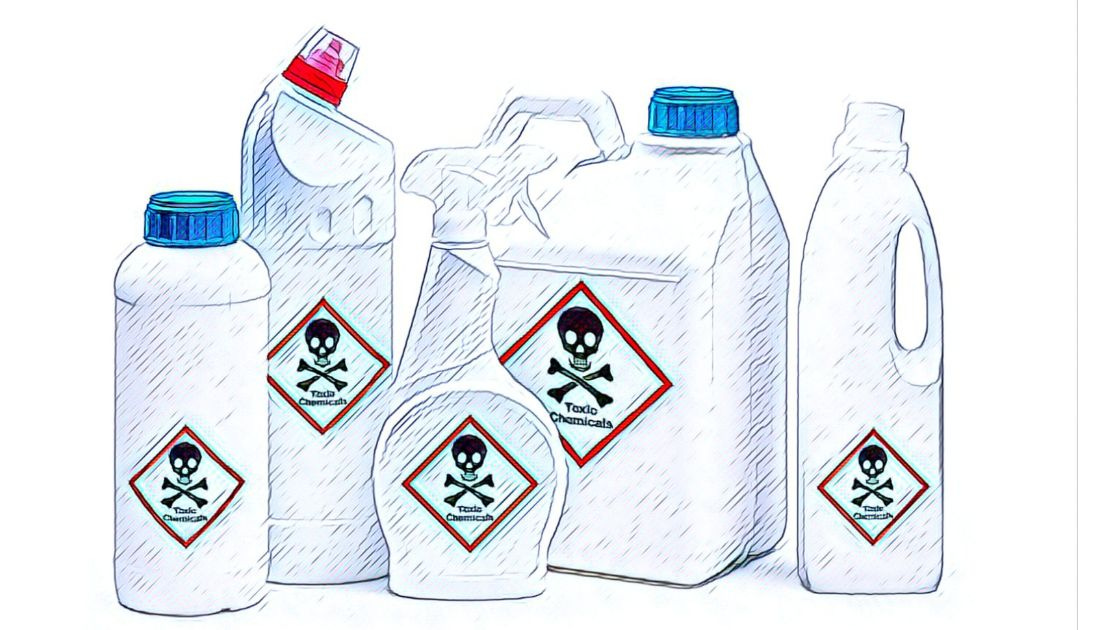Hi there,
Multiple Chemical Sensitivity (MCS) sounds like a made-up disease, but research over the past few decades now shows us that it is real, with cellular changes and physical reactions that occur.
Both genetic studies and cellular research show that people with MCS react to everyday environmental chemicals that don't bother most people. Research points to detoxification genes, the olfactory system, and TRP ion channels.
If you know someone with MCS, please share my new article (linked below) with them .
This past week I was contacted by a member who was worried about having Lynch syndrome, which causes an increased risk of cancer due to a rare mutation. She had run a report on her combined data file using Genetic Genie. It showed that she had 46 homozygous mutations for Lynch syndrome. This is statistically impossible (and incompatible with life), so I helped her understand why the report was wrong.
Another member contacted me this week about a report from a different company that had her wondering what it meant. The report showed her being in the 99th percentile for getting a devastating prion disease. This company's report was just oddly worded and caused unnecessary stress.
I'm sharing this because errors are possible in any genetic report (and quite common from certain companies). For something that is rare and devastating, always investigate further before you worry about it.
If you ever spot an error or typo on Genetic Lifehacks, please let me know! Yesterday, a kind member pointed out that I had written lymphoma instead of lymphedema for an rs id in my lymphedema article. I wish I could blame my spell check app, but I likely just typed the wrong word.
Gratefully yours,
Debbie
New articleMultiple Chemical Sensitivity (MCS): Genetics, Causes, and Solutions
Key takeaways:
~ Multiple chemical sensitivity is a systemic response to common environmental chemicals that don’t normally cause reactions.
~ Genetic research points to interactions between detoxification genes and the olfactory system.
~ Targeting the right genetic pathways may help alleviate reactions.
Updated Articles:
(Quick list of articles that I've updated this month with new research.)
Ringing in your ears? Genetics, Tinnitus, and Meniere’s disease
Age-Related Macular Degeneration Genes
Alzheimer’s Gene: APOE from your genetic raw data
Which type of choline works best with your genes?
What I've been reading:
1. Long telomeres, the endcaps on DNA, not the fountain of youth once thought, and scientists may now know why (from MedicalExpress)
Telomeres are the end segments of DNA that are slowly lost as cells age and replicate. Researchers once thought that ultra-long telomeres were the "fountain of youth". However, in people with a rare mutation that causes ultra-long telomeres, researchers have found that the stem cells get mutations that stick around, leading to tumors, fibroids, lymphomas, and goiters.
2. Researchers Sequence Genome of Famed Sled Dog Balto (SciNews)
Geneticists sequenced the genes of the famous sled dog, Balto, who took the needed diphtheria antitoxin to Nome, AK in 1925. The results showed that he was genetically similar to Siberian huskies, Alaskan malamutes, Greenland sled dogs and outbred dogs from Asia.
3. Genetic correlations between Alzheimer’s disease and gut microbiome genera (Nature Scientific Report)
The study examined the genetic association between specific gut microbiota genera and Alzheimer's disease. Previous research suggests that gut dysbiosis contributes to the development of neurodegenerative diseases. The gut microbiota produces toxins and short-chain fatty acids that can affect brain health and immune function. The study analyzed the genome-wide association study of gut microbiota genera to determine the genetic correlation between microbes, host genes, and Alzheimer's disease. Ten genera were significantly associated with Alzheimer's-related genes, and four of them were associated with the APOE E4 risk allele. The proinflammatory gut microbiota may promote the development of Alzheimer's disease by interacting with APOE.
Share this newsletter with a friend!





